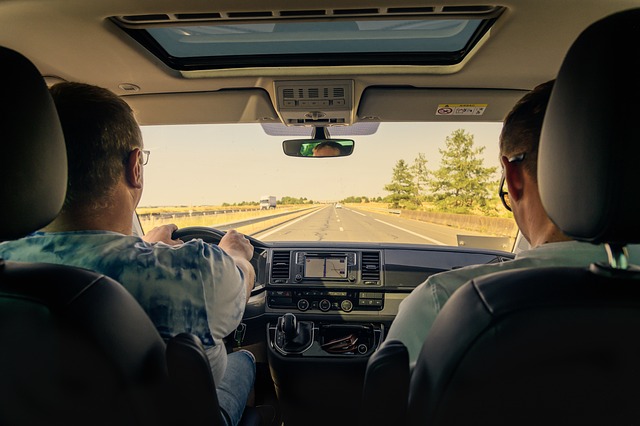When You Sit in a “Digital Car” You Consent to Being Recorded and Your Personal Data Sold
CAPITALISM, 8 Jan 2024
Joanne Nova - TRANSCEND Media Service
People say things in a car they might never write in an email. Well, they used to.
3 Jan 2024 – Who knew? The Subaru privacy policy allows them to record your conversations and your face and sell that data to the highest bidder. Most likely (who reads these things) all the other car companies do too. When an AI analyzes it, presumably it will identify your voice (and you from the cameras). Anything you say in the public broadcasting world of private cars will belong to them, even if you are a passenger, and were never asked.
So if you want to have a private discussion about your political views, your children, your religion, troubles at work, intellectual property, discoveries, information that might affect stock prices, your thoughts on immigration, corruption, or mention any medical issues you have, or affairs anyone you know has had, don’t do it in an electric car. Imagine the blackmail, political, legal and insider potential with this data in the hands of…
“Subaru“, posted on Foundation Mozilla
Here’s something you might not realize. The moment you sit in the passenger seat of a Subaru that uses connected services, you’ve consented to allow them to use — and maybe even sell — your personal information. According to their privacy policy, that means things like your name, location, “Audio recordings of Vehicle Occupants”, and inferences they can draw about things like your “characteristics, predispositions, behavior, or attitudes.” Call us bonkers, but we don’t think that simply sitting in the passenger seat of someone’s Subaru should mean you consent to having any of your personal information use for, well, pretty much anything at all. Let alone potentially sold to data brokers or shared with third party marketers so they can target you with ads about who knows what based on the the inferences they draw about you because you sat in the back seat of a Subaru in the mountains of Colorado. We’re gonna really call out Subaru for this, because they lay it out so clearly in their privacy policy, but please know, Subaru isn’t the only car company doing this sort of icky thing.
Subaru also admit that when the information is transmitted they cannot guarantee that it will not be intercepted, only that they will do their best to look after your info after they receive it.
To opt out:
It seems the best way to keep Subaru from collecting, sharing, or selling your data to people who want to sell you stuff or data brokers or law enforcement, your best bet is to never buy, drive, or ride in a Subaru. Except if you’re walking on the street when a car with exterior cameras or sensors drives by. Then you might get caught up in that data collection too. So, yeah, the point is, you really don’t have many great choices when it comes to protecting your privacy from connected cars these days, other than to never buy them, drive them, sit in them, or exist on the street when they drive by.
________________________________________________
![]() Joanne Nova is a science presenter, writer, speaker, former TV host, and author of The Skeptic’s Handbook (over 200,000 copies distributed & available in 15 languages).
Joanne Nova is a science presenter, writer, speaker, former TV host, and author of The Skeptic’s Handbook (over 200,000 copies distributed & available in 15 languages).
Go to Original – joannenova.com.au
Tags: Big Brother, Big data, Big tech, Capitalism, Mafia, Privacy, Privacy rights, Spying, Surveillance, Tyranny
DISCLAIMER: The statements, views and opinions expressed in pieces republished here are solely those of the authors and do not necessarily represent those of TMS. In accordance with title 17 U.S.C. section 107, this material is distributed without profit to those who have expressed a prior interest in receiving the included information for research and educational purposes. TMS has no affiliation whatsoever with the originator of this article nor is TMS endorsed or sponsored by the originator. “GO TO ORIGINAL” links are provided as a convenience to our readers and allow for verification of authenticity. However, as originating pages are often updated by their originating host sites, the versions posted may not match the versions our readers view when clicking the “GO TO ORIGINAL” links. This site contains copyrighted material the use of which has not always been specifically authorized by the copyright owner. We are making such material available in our efforts to advance understanding of environmental, political, human rights, economic, democracy, scientific, and social justice issues, etc. We believe this constitutes a ‘fair use’ of any such copyrighted material as provided for in section 107 of the US Copyright Law. In accordance with Title 17 U.S.C. Section 107, the material on this site is distributed without profit to those who have expressed a prior interest in receiving the included information for research and educational purposes. For more information go to: http://www.law.cornell.edu/uscode/17/107.shtml. If you wish to use copyrighted material from this site for purposes of your own that go beyond ‘fair use’, you must obtain permission from the copyright owner.
